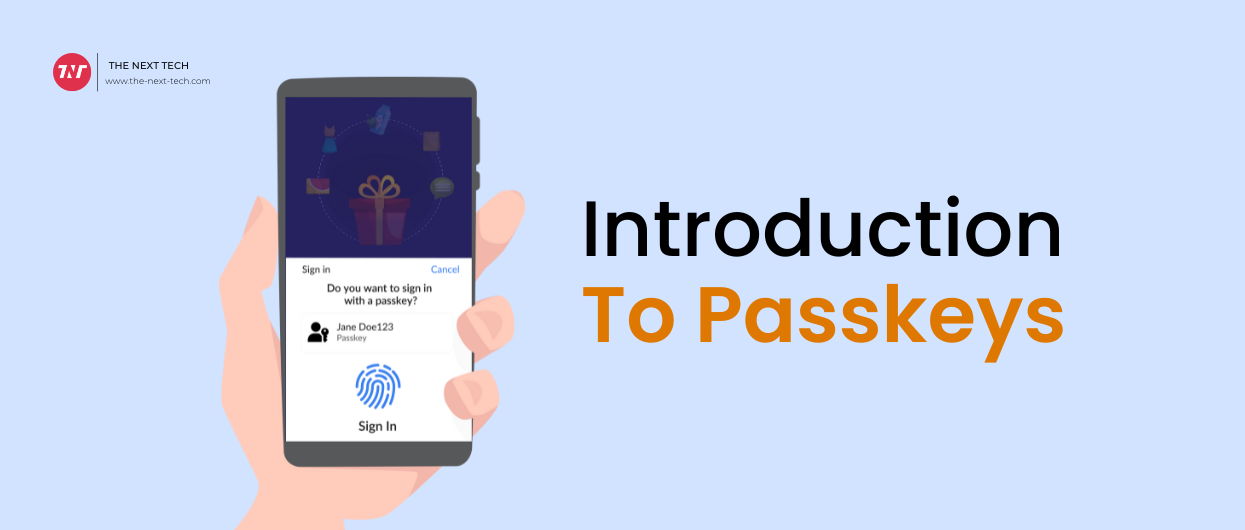
The new iteration which is known as ‘Passkeys’ – is the beginning of the end of the password? Let’s find out!
Passwords are essential for various reasons including minimizing threats like phishing and scams.
In the world of cyberattacks, a strong password is important in order to keep sensitive data secured. For example, vulnerable passwords can lead to identity theft.
Therefore, Google has long recognized these issues and provided 2-step Verification and Google Password Manager services.
But it seems these are also getting vulnerable to providing online security and safety to data and a person’s identity.
The tech giant, Google announced something about Passkeys later this year and finally began rolling out passkeys on its workspace cult.
In today’s blog, our agenda is Passkeys. We’ll explore passkeys’ features, limitations, and future scope.
Also read: How To Make $5000 In A Month? 20+ Easy Ways To Make 5K Dollar Fast + Tips!What Are Passkeys?
Passkeys are the new way of security used for logging in to apps and websites.
They offer more immersive security than traditional passwords, so users do not need to rely on birthdays, pets, and the infamous ‘password123’.
Though it’s secure, trusted, and robust; they are paving the way to a passwordless future.
What Is a Passwordless Future?
Passwordless future is a conceptual term that defines much less use of passwords and promotes passkeys.
By using passkeys, users no longer need to rely on additional security processes like secret SMS codes or even Alphanumeric passcodes.
Benefits Of Passkeys
Following are the benefits of passkeys at a glance:
Easy to set up
Setting up passkeys is easy and has a guided process developed by Google. To set up passkeys for your apps and websites, you can do it from Manage your Google Account option on the web.
Quick sign in
Passkeys allow users to sign into apps and websites quickly as easily as saying 1-2-3. Hence eliminating the traditional method, users can sign in through passkeys easily.
Flawless security
Passkeys are best known as a default security layer. However, users can use it as an additional layer of security while attempting to sign in. The technology is based on biometric authentication that grants flawless security.
Prevent cyberattacks
Passkeys don’t function as traditional 2-Step verification, security keys, and backup codes. Instead, it uses a fingerprint and a face scan to support the signing process quickly and easily.
Passwordless future
Indeed, with zero involvement of traditional password, it creates a way to a passwordless future. With passkeys, the need for password straightforward dismantle, resulting in companies moving to passwordless authentication.
Passkeys vs Passwords
Learn about key similarities and key differences between passkeys and passwords.
Key Similarities:
- Both technologies serve as a platform of authentication and identity proof.
- They protect access to digital assets, online accounts, and services.
- Both can be integrated with other security upfronts such as multi-factor authentication, for enhanced security.
Key Differences:
- Passkeys are cryptographic based and passwords are user-generated.
- Passkeys cannot be stored on servers whereas passwords can be stored on servers.
- Passkeys are secured towards phishing attacks whereas passwords are vulnerable to phishing.
- Passkeys aren’t universally accepted whereas passwords are accepted across all platforms and services.
Limitations of Passkeys
Certainly, with any advantages, there come its limitations as well. Passkeys does have limitations on its sleeve and those are mentioned below:
- The primitive limitation of Passkeys is that they aren’t yet widely accepted. The technology is accepted by a few tech giants such as Google, Apple, Paypal, and a few others but they still have a long way to go.
- The success of passkeys is dependent on external devices such as smartphones. Sometimes they also need extra software and hardware to function in time. This is another peak limitation of passkeys.
- Not for everyone, passkeys can be convenient or compatible. Might some still feel good to rely on traditional password as a reliable source. This constraint also poses a limitation to fairly accept passkeys.
Future of Passkeys
With the iteration of new technology which is known as passkey, there are a number of companies looking to integrate passkey as a functionality to make digital life safer and more secure for their patrons.
Generally, businesses will use passkeys to offer their clients secure apps and websites. Additionally, users will use it to experience a faster sign-in process.
Final Thought
Passkeys are indeed, more secure, easy to use, and easy to manage but they are often less recognizable and less convenient for people or businesses.
However, it eliminates/prevents threats like phishing, scams, and poor password hygiene with passwordless future technology.
So, the future of passkeys is bright and cheerful 🙂
Also read: 10 Best AI Text To Speech Generator (October 2024)Frequently Asked Questions
What is a passwordless future?
Passwordless future is a conceptual term that defines much less use of passwords and promotes passkeys for better security and prevent threats.
Why is passwordless authentication the future?
Passwordless authentication is the future because it provides resistance to phishing attacks. It also provides industries top-tier security and safety besides passwords which are vulnerable to phishing.
Why is a passkey more secure than a password?
Passkey is observed as a more secure way than password because it makes it harder for hackers or attackers to steal information which are passkey protected.
How do passkeys replace passwords?
There are various benefits of passkeys over traditional passwords such as they are resistant to phishing and always strong , resulting in sharing secret files confidently.
What companies have adopted passkeys?
Microsoft and Google have joined forces to make passkeys a reality. Additionally, Apple also marked its passkey option with the release of iOS 16. PayPal, Shopify and Yahoo! Japan also deployed passkeys as sign-in for their users.
Top 10 News
-
01
[10 BEST] AI Influencer Generator Apps Trending Right Now
Monday March 17, 2025
-
02
The 10 Best Companies Providing Electric Fencing For Busines...
Tuesday March 11, 2025
-
03
Top 10 Social Security Fairness Act Benefits In 2025
Wednesday March 5, 2025
-
04
Top 10 AI Infrastructure Companies In The World
Tuesday February 11, 2025
-
05
What Are Top 10 Blood Thinners To Minimize Heart Disease?
Wednesday January 22, 2025
-
06
10 Top-Rated AI Hugging Video Generator (Turn Images Into Ki...
Monday December 23, 2024
-
07
10 Top-Rated Face Swap AI Tools (Swap Photo & Video Ins...
Friday December 20, 2024
-
08
10 Exciting iPhone 16 Features You Can Try Right Now
Tuesday November 19, 2024
-
09
10 Best Anatomy Apps For Physiologist Beginners
Tuesday November 12, 2024
-
10
Top 10 Websites And Apps Like Thumbtack
Tuesday November 5, 2024







